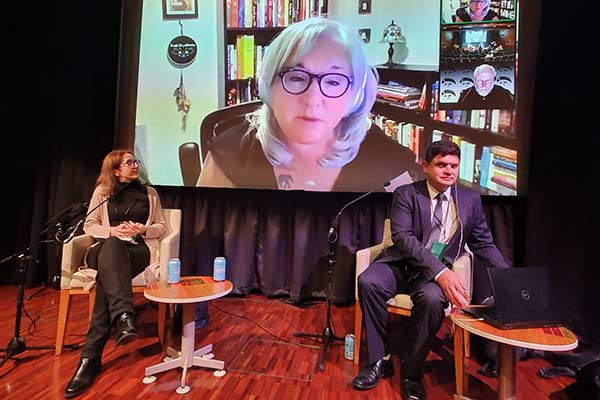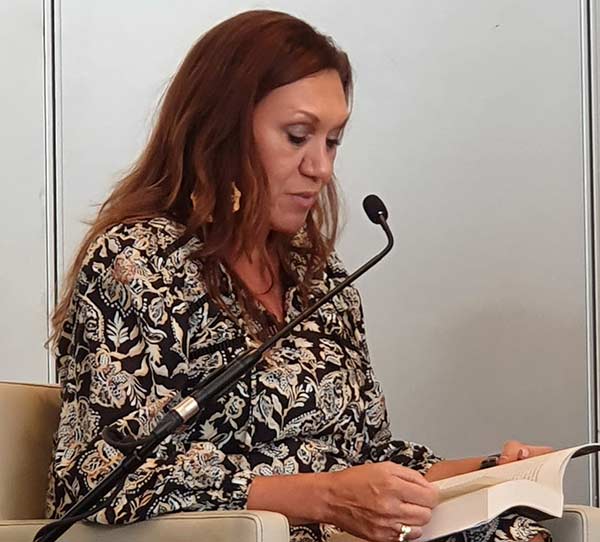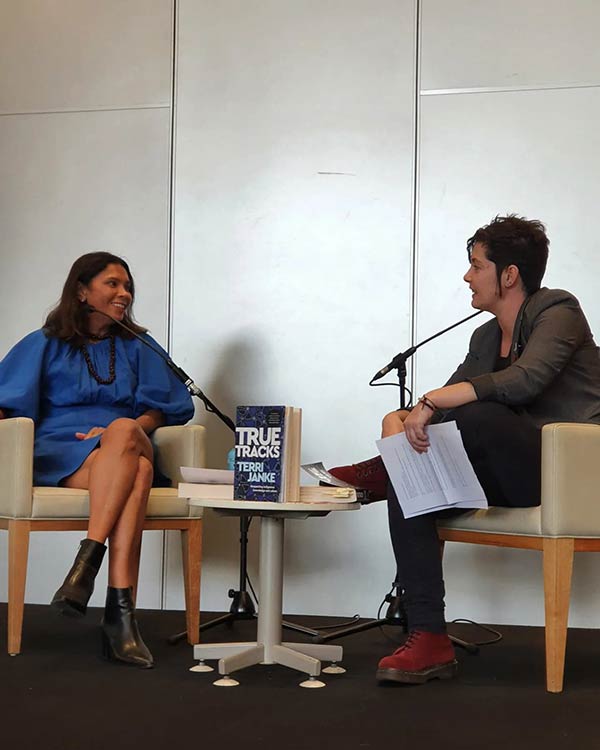Sixty years ago, the first Brisbane Writers Festival (BWF) kicked off as part of the wider Warana Festival. Unsurprisingly, BWF has changed a lot through the decades, evolving with the literary trends, and seeing a brief break in routine through the recent pandemic. To celebrate a milestone anniversary, though, BWF has reinvented itself, returning to its roots as a festival for and about community.
Recently, there’s been a trend towards literary festivals as spaces for politicians to come and discuss books they didn’t actually write, and while KRudd was on hand to show off the newer, beardier aesthetic, thankfully, this year’s festival saw a return to conversations with actual writers. While writing is, at its heart, a political activity, the #BWF60 saw a significant shift from politicians to the people. I am all for this trend.
'Inclusivity Matters'
This shift has also seen a move to a multi-curator approach, which allowed for a far more varied festival line-up, and I hope it’s an ongoing practice. A core component of the new design is showcasing the writings from Indo-Pacific countries that are often overlooked here. In this initial effort, Anne-Marie Te Whiu curated a spectacular lineup of Aotearoa (New Zealand) and Pasifika artists and conversations, and besides the opportunity to gain a wealth of new literary crushes (there were so, so many), this also gave readers, and allies, a glimpse into some of the ongoing issues around reclaiming traditional languages. Stacey Morrison’s '(un)Bite Your Tongue' event especially left audiences teary eyed, and empowered, with the reminder that it’s okay, even natural, to feel rage and frustration at learning your first language later in life, and having to work through trauma and grief as part of your learning journey.
Iconic Aussie poet, Ellen Van Neerven brought a powerhouse of First Nations voices to the stage in celebration of the 10th year of the Black and Write project, an initiative to support Indigenous writers and editors and ensure diversity in Australian publishing. While I loved every First Nations event I attended, I hope the ‘Cuppa With An Elder’ events are repeated in future festivals so more people get the chance to sit and engage with the wisdom, experience, and storytelling mastery of community Elders.
Dr. Anita Heiss
Not everything was political, though. There were more than enough writing-focused events to keep the most studious of word nerds busy, and ABC’s Rhianna Patrick made magic curating the Love YA sessions, with a diverse range of events and artists. Truthfully, I would have loved to attend at least triple the events during the six-day event.
COVID has resulted in a drop in audience numbers, and it’s a little disappointing to see so few of the events streamed for those unable to physically attend. Ironically, the only event I saw that was both live and streamed was ‘Inclusivity Matters’, on ensuring equal access to literary and educational resources. With a lot of immunocompromised people trapped at home for the foreseeable future, I hope event streaming becomes more common.
Terri Janke in conversation with Grace Lucas-Pennington
Six days of festival is somewhat exhausting, but while the new format takes some getting used to, I can’t wait to see what comes next. Brisbane Writers Festival will return to the Cultural Centre in May 2023, and you can keep an eye out for upcoming satellite events on their website.




